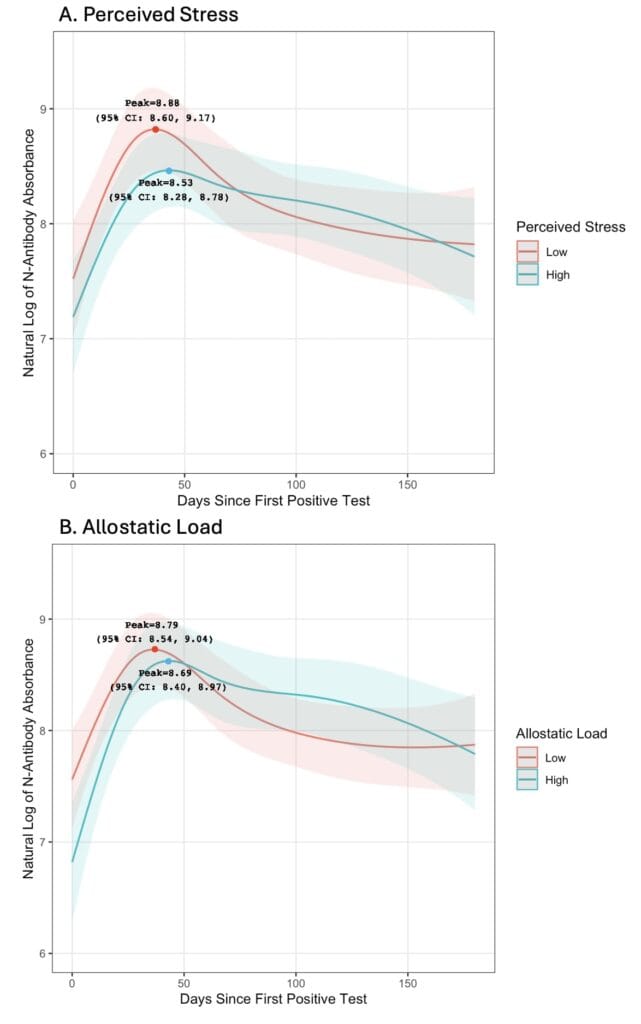COVID-19 Pandemic
The relationship between stress and SARS-CoV-2 Antibody Response after Natural Infection: Longitudinal Findings from the Aegis Study Erika Beidelman* Erika Beidelman Ashley Judge David B. Allison Stephanie Dickinson Lilian Golzarri Arroyo Anna L.M. Macagno Jon Macy Christina Ludema Kevin C. Maki Molly Rosenberg
Introduction: Psychological stress can cause diminished immune response to infectious challenges. The extent this holds true during SARS-CoV-2 infection and the modifying effect of vaccination status is to date untested. We explored these relationships in a sample of adults sourced across nine clinical sites, standardizing our results to the U.S. adult population.
Methods: Out of 2178 participants in the Aegis Study (2021-2022) we identified 445 adults with a laboratory-confirmed SARS-CoV-2 infection. We estimated the natural log of nucleocapsid-binding antibody (N-antibody) absorbance at each study visit following a positive SARS-CoV-2 test. Linear mixed effects models were fit to estimate the association of each perceived stress and allostatic load, both measured prior to infection, with N-antibody trajectories up to 260 days post-positive SARS-CoV-2 test. Standardization was performed using NHANES data and a post-stratification weighting approach.
Results: Lower stress groups had higher peak antibody response, with consistent results across standardized and unstandardized analyses. Differences were greater for perceived stress compared to allostatic load. Low perceived stress was associated with greater antibody response up to 31 days post-positive test (0.418, p=0.0493) while low allostatic load was associated with greater antibody response up to 20 days post-positive test (0.374, p=0.0443). Pre-infection vaccination status (full vaccination = 73%) appeared to modify the relationship between stress and N-antibody trajectories where the observed estimates attenuated to the null for individuals with full vaccination.
Discussion: In this longitudinal analysis linking two robust stress measures and longitudinal antibody data, we found consistent evidence that high stress was associated with reduced N-antibody response following SARS-CoV-2 infection. We also observed that full vaccination may equalize the antibody response between high and low stress groups.

